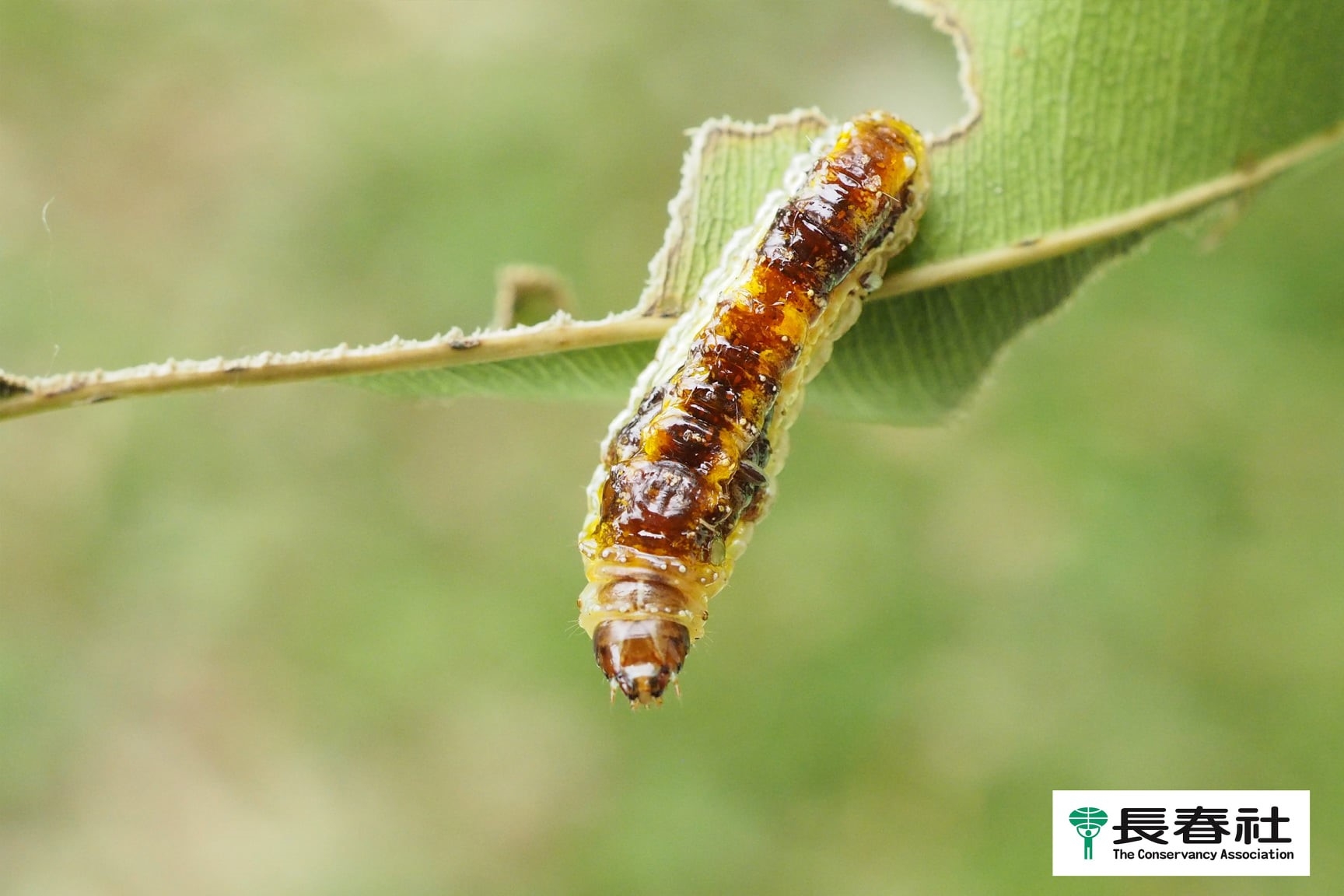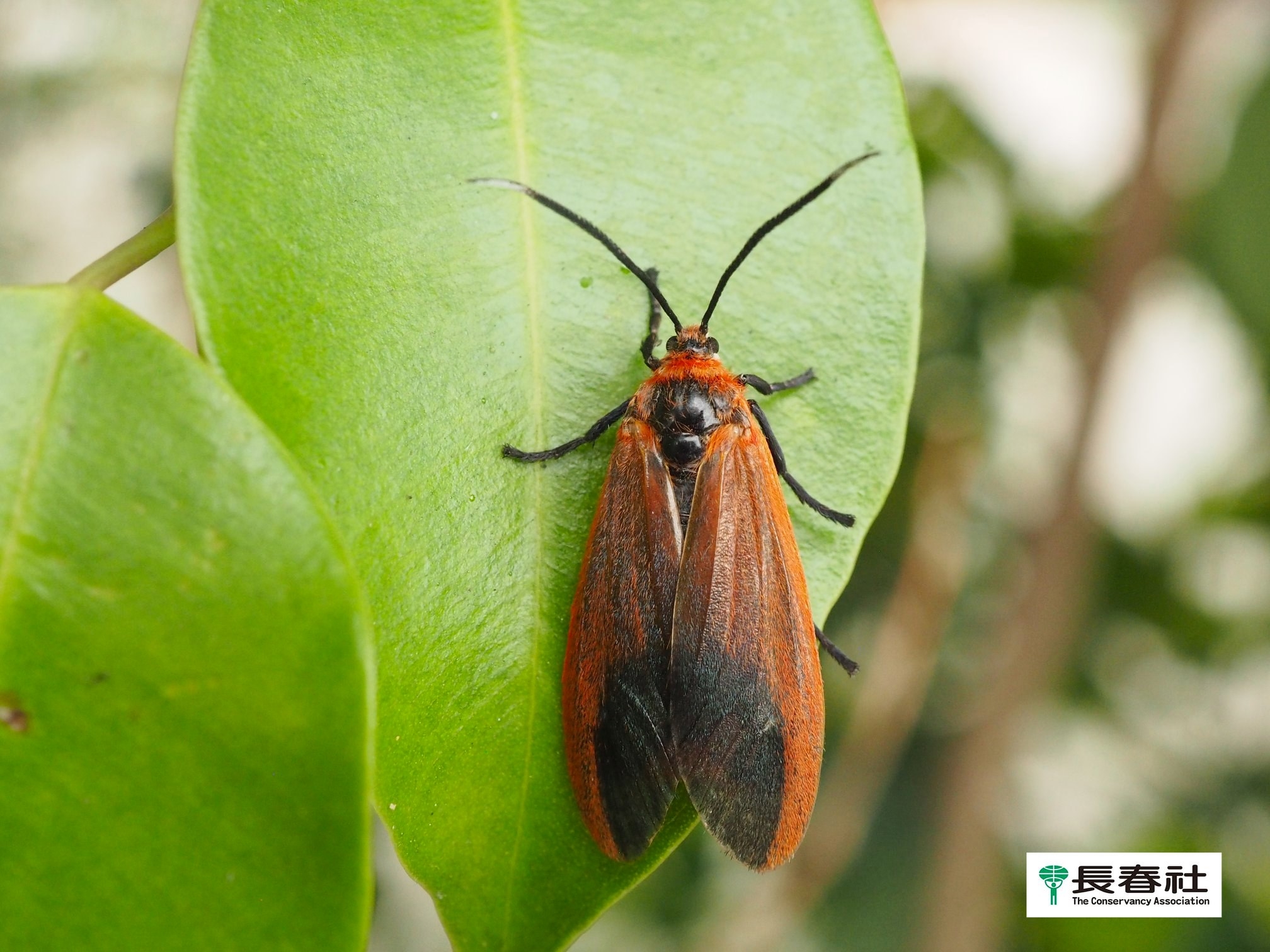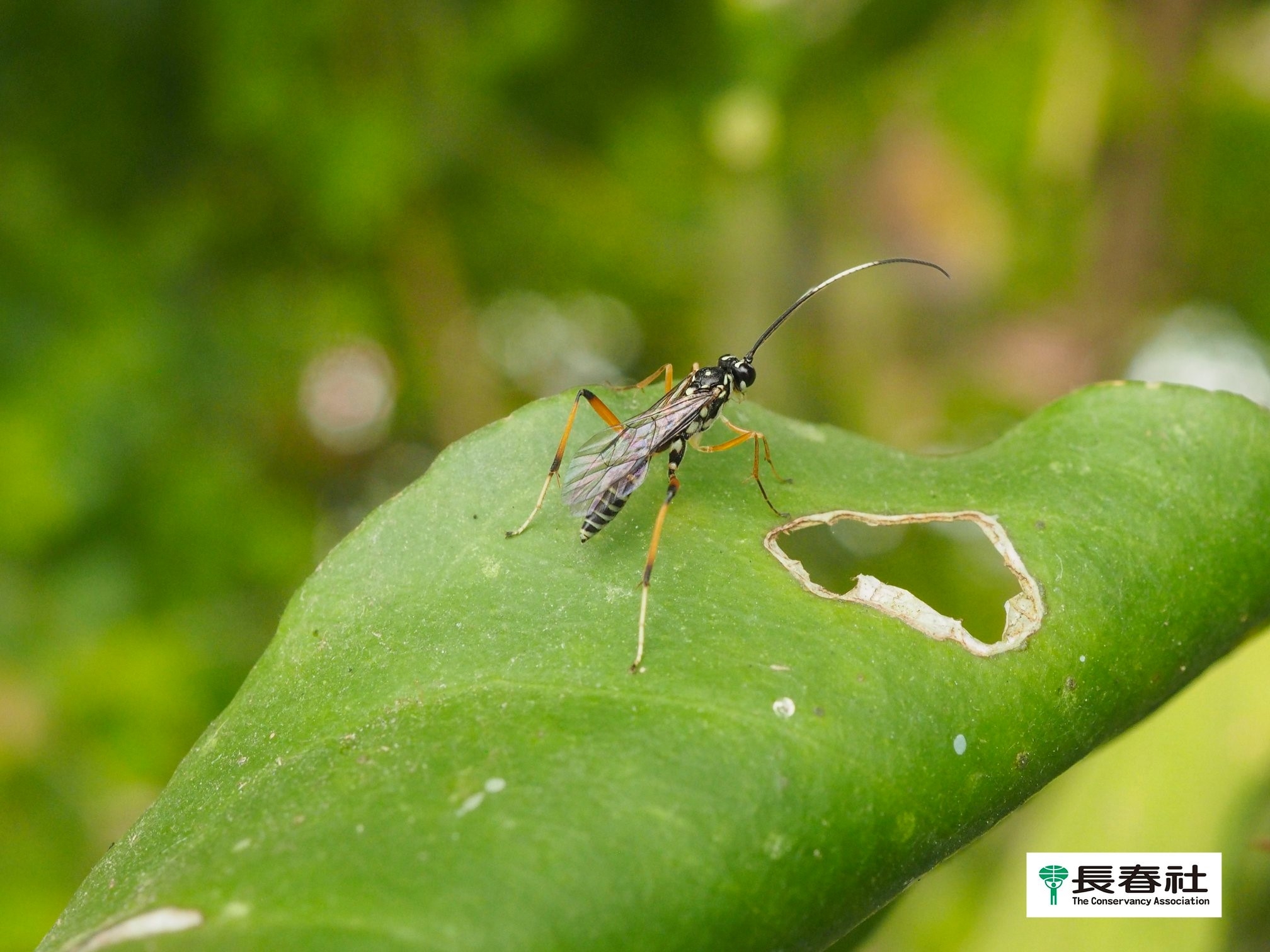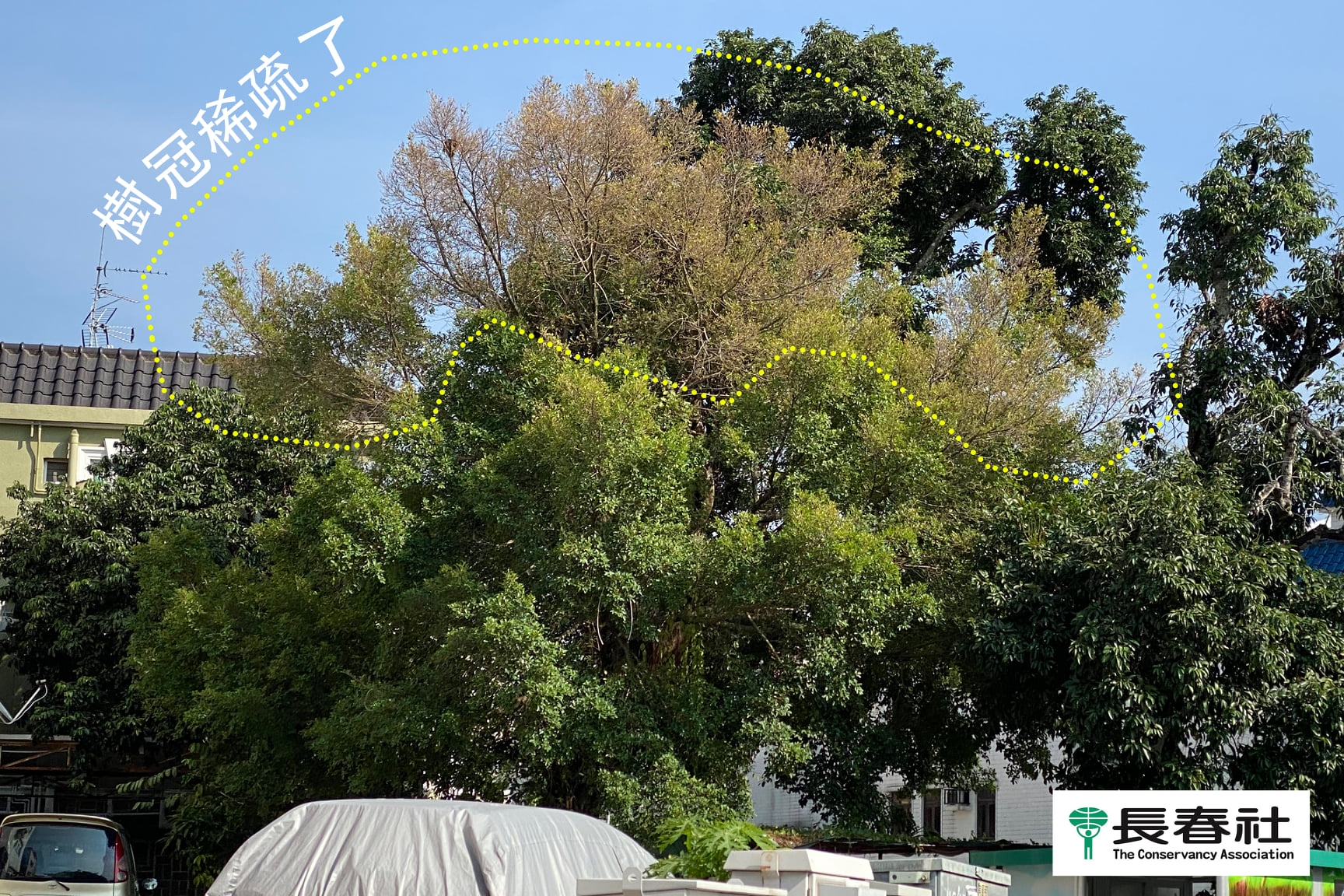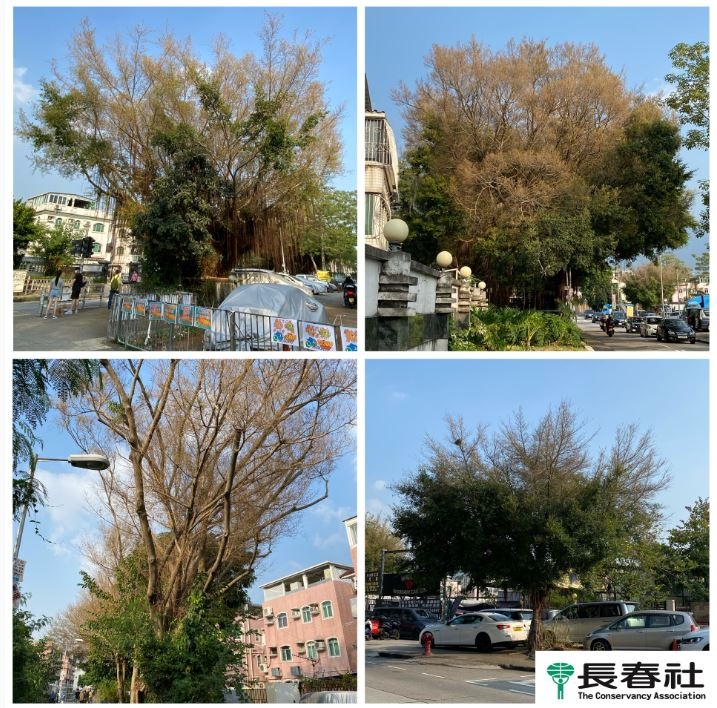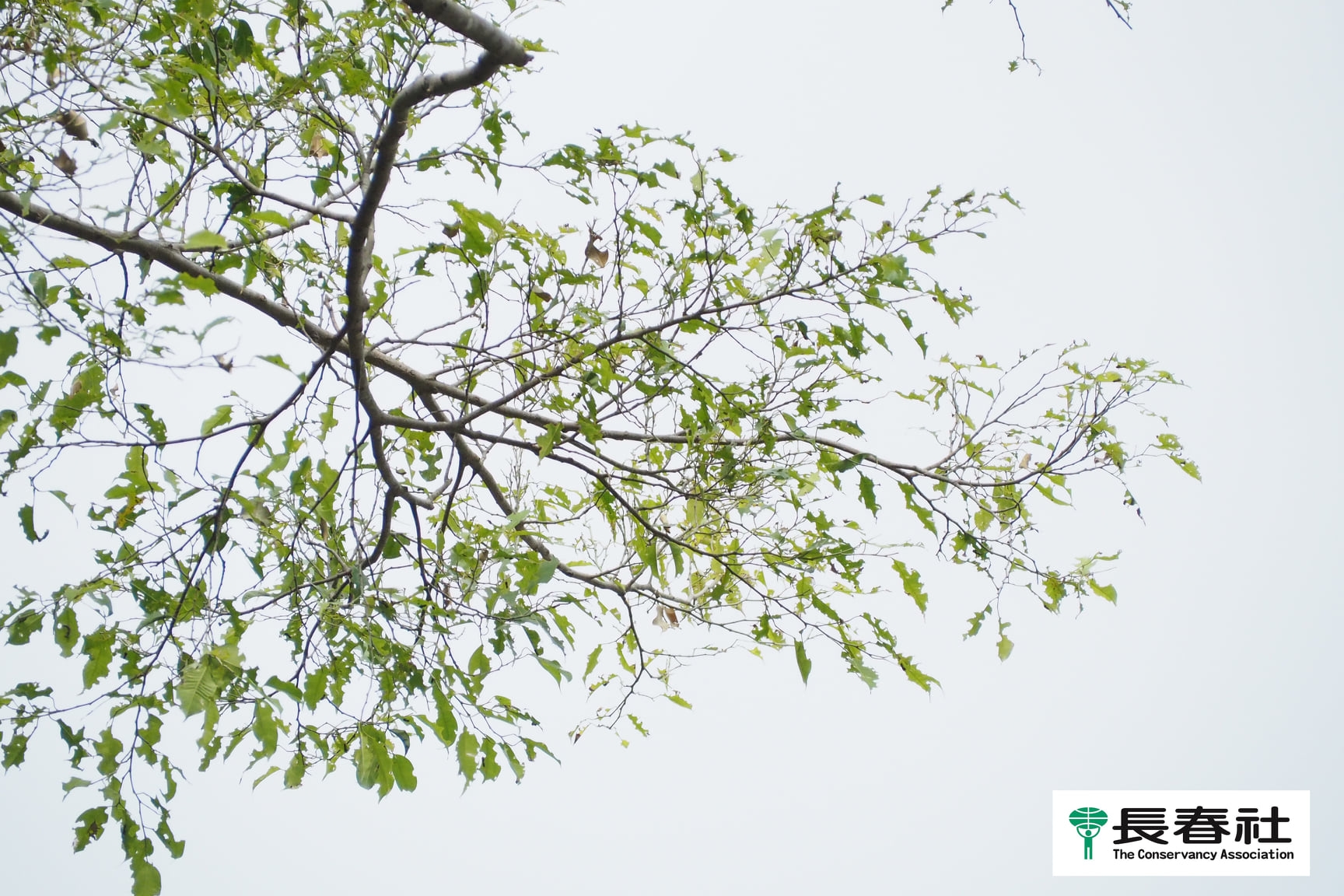In August to November 2020, a moth worm called Phauda flammans consumed leaves of Ficus sp., mainly on Ficus microcarpa and Ficus benjamina. What’s orst worse case is was that the whole canopy of the tree were was eaten by the moth worms. We invited members of the general public to report the condition of the Ficus sp. and the moth wormsworms’ activities during the outbreak through Facebook in October 2020 [1]. We received lots of replies. Afterwards, we consolidated the data into an online map [2]. T and found out the affected areas included Tin Shui Wai, Tuen Mun, Kam Tin, Yuen Long and Sheung Shui. The moth worms ate from the top of the canopy down to the tree, in some of the cases 90% of the tree canopy was missing.
After few months in March 2021, we re-visited the affected areas and checked the conditions of the trees and the moths. Every single tree has its unique condition, and they have also had to tolerant the a very dry winter this year [3], but in general, for most of the trees, and the canopy, which was eaten up by the moths last year, has re-grown.
The larve of Phauda flammans will hide in the soil and overwinter by turning to pupa overwinter. During our field visit, there were many adult moths flying on top of the trees. According to the research [4], starting from March every year, the overwintered moth pupa will emerge and become adult moth. They will mate and reproduce in April where, the larve will become the first generation this year and start to consume the leaves of Ficus sp..
With the finding of with regards to the existence of adult moths during field visit, there were also lots of Gotra octocincta, which is one of the parasitoid wasp of Phauda flammans, flying around the trees (another parasitoid wasp is Apanteles sp.)). It was to believe that the existence of Phauda flammans attract the parasitoid wasp. The female adult Gotra octocincta will lay their eggs in the body of Phauda flammans larve. When the larve grows bigger and bigger, the larve of the parasitoid wasp will kill the larve moth (host). In this case, parasitoid wasp Gotra octocincta is the natural enemy of Phauda flammans. It is an important biological control agent for Phauda flammans occurring on Ficus sp. and should be careful not to kill the parasitoid wasps by using pesticides.
It is a normal phenomenon of worms having their meal on tree, and in our observation, most of the trees can recover after the worm left. However, it should be alerted if the outbreak is widely spread, and is becoming more and more frequent and serious, as it may affect the health condition of the trees. The trend of the outbreak should be monitored, at the same time, the natural enemy of Phauda flammans, i.e. parasitoid wasp Gotra octocincta and Apanteles sp. should be protected by avoiding the not using use of pesticides to kill the moth worms.
[1] 收集榕樹蟲咬狀況 (只限中文 / Chinese only)
[2] 長春社榕樹蟲咬狀況(2020年10-11月) (只限中文 / Chinese only)
[3] According to HKO, only traces of rainfall waswere recorded in the January 2021, making it one of the eight Januaries with traces of rainfall since records began in 1884: Hong Kong Observatory, The Weather of January 2021
[4] YANG Ya-rong; Longhai Forest Pests and Dieases Control and Quarantine Station (2018); 朱红毛斑蛾生物学和防治措施初探; http://gb.oversea.cnki.net/KCMS/detail/detail.aspx?filename=QHNK201802026&dbcode=CJFD&dbname=CJFDTEMP&fbclid=IwAR15bzKWKwuYj44yo5vcleemCaumec2N6GcHXlyepLHpCH0F2kruVuj5juE
